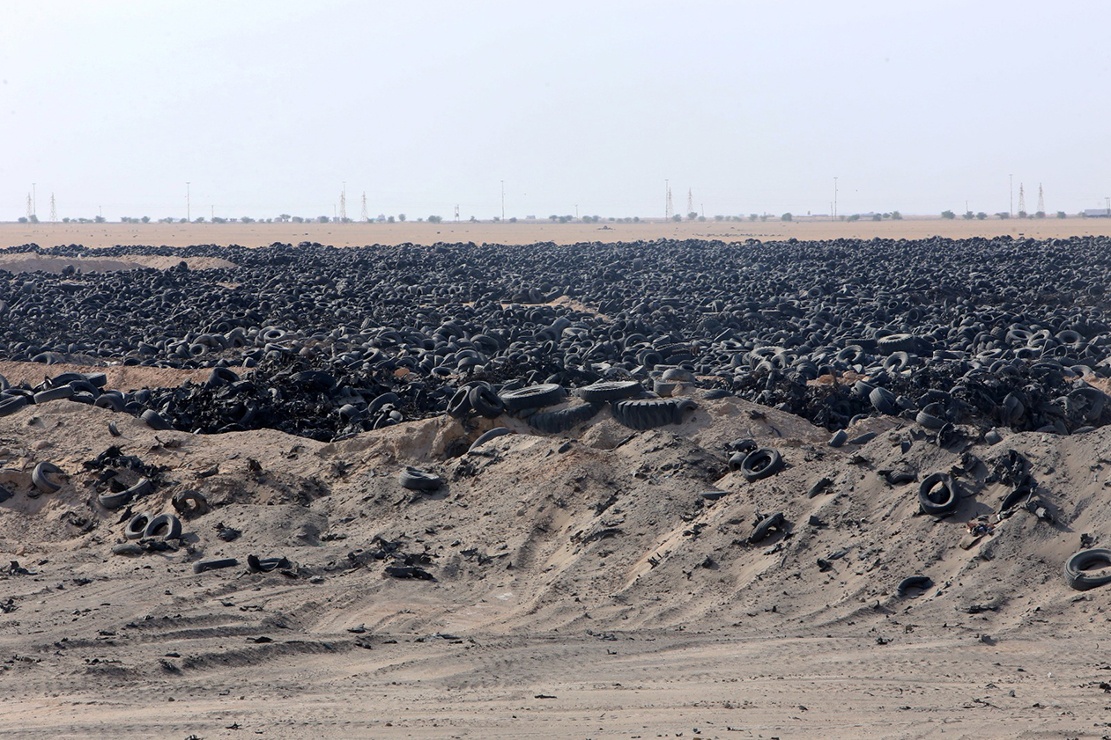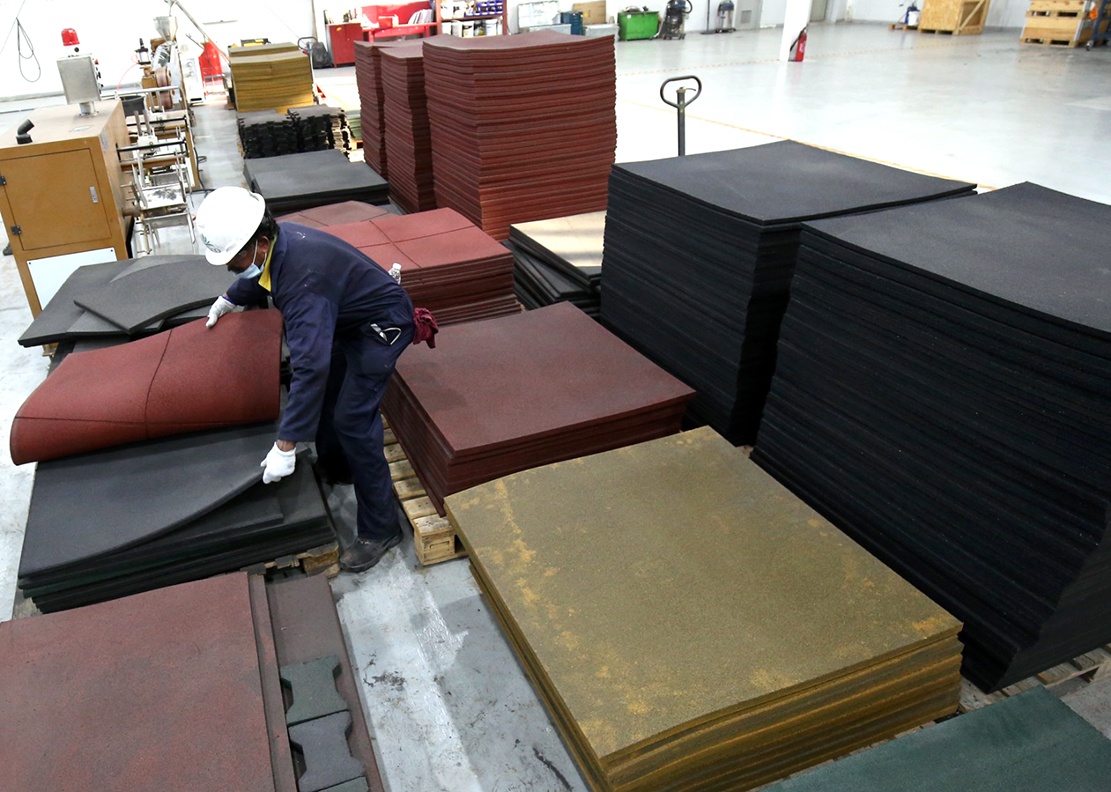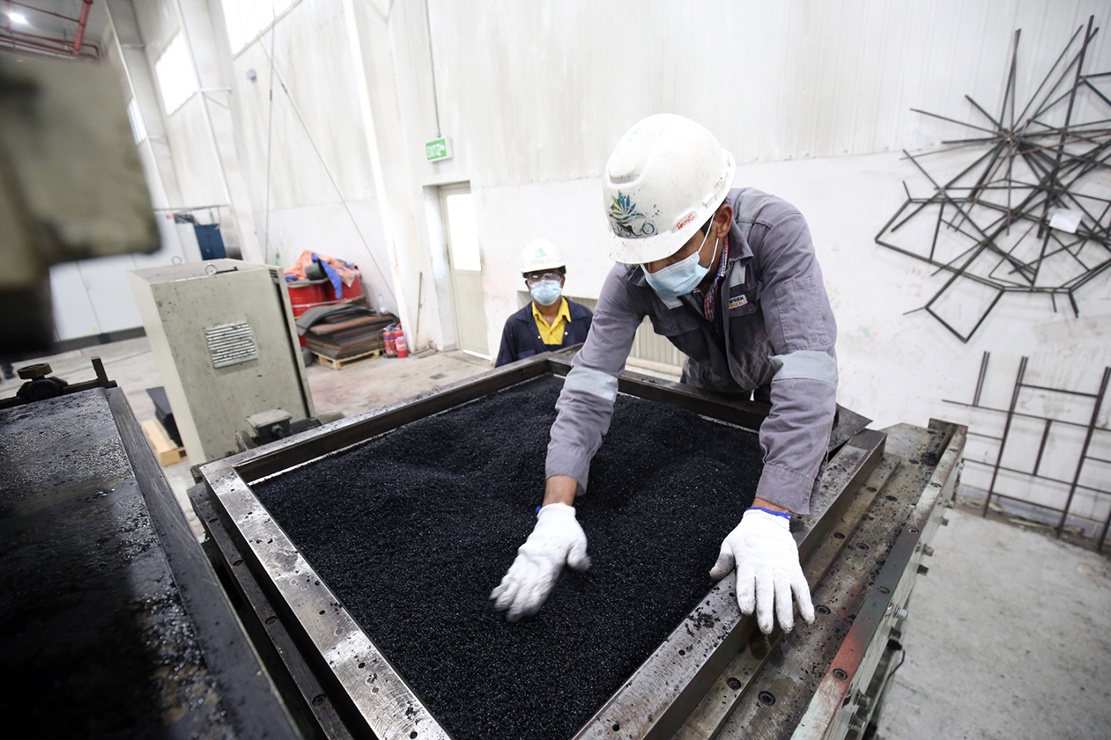 KUWAIT: These pictures show used tires that were transported from a landfill in the north of Kuwait to Al-Salmi border region near the country’s industrial area, where they will be cut or repurposed for local use or for export, on Wednesday. — Photos by Yasser Al-Zayyat
KUWAIT: These pictures show used tires that were transported from a landfill in the north of Kuwait to Al-Salmi border region near the country’s industrial area, where they will be cut or repurposed for local use or for export, on Wednesday. — Photos by Yasser Al-ZayyatBy Ben Garcia
One hour and 45 minutes west of Kuwait City lies the biggest tire graveyard in the world. 42 million tires - at least that’s the official count. There may be more. Kuwait recently removed the last of old tires from a dump near Mutlaa further west to Salmi. Now the process of reducing the total waste by recycling has begun.
From the main highway, you see a black sea of rounded rubber in the middle of the flat, beige desert. Next to these are a new crop of recycling firms established to tackle the mountain of rubber. One of these companies is EPSCO Global for General Trading Company. Set up in 2019, the recycling plant stands on a 50,000 square meters lot near the Salmi tire dump.
 Using machines imported from Denmark, EPSCO Global for General Trading aims to draw down the massive of unwanted tires and create an exportable product. “The machine recycles, shreds, granules and powders the tire along the process, depending on your need and wants,” explains Fuad Akbar, Chief Project Officer EPSCO Global for Trading Company.
Using machines imported from Denmark, EPSCO Global for General Trading aims to draw down the massive of unwanted tires and create an exportable product. “The machine recycles, shreds, granules and powders the tire along the process, depending on your need and wants,” explains Fuad Akbar, Chief Project Officer EPSCO Global for Trading Company.
“In 2019, we started several trials. Then the commissioning of leaky pipe machine and molded press commenced as well. This allows EPSCO recycling plant to produce recycled rubber leaky pipes used in farms as well as rubber mats interlock tiles, and various molds and products,” he said.
 Last year, the company started the supply in local market to various gyms, schools and as of this year, has begun exporting to countries like Qatar, supplying foreign markets with much-needed rubber granules. “We have now tens of recycled products that can be supplied to both local and international markets,” Akbar said.
Last year, the company started the supply in local market to various gyms, schools and as of this year, has begun exporting to countries like Qatar, supplying foreign markets with much-needed rubber granules. “We have now tens of recycled products that can be supplied to both local and international markets,” Akbar said.
Kuwait had announced last Sunday clearing out the two-square-kilometer tire dump with plans to transform it into a new residential city. “We have moved from a difficult stage that was characterized by great environmental risk,” Oil Minister Mohammed Al-Fares said at the now empty landfill some five kilometers from Al-Jahra province. Sheikh Abdullah Al-Sabah, director general of the Environment Public Authority, confirmed meanwhile that Kuwait plans to recycle all the tires and avoid the need for another landfill.










